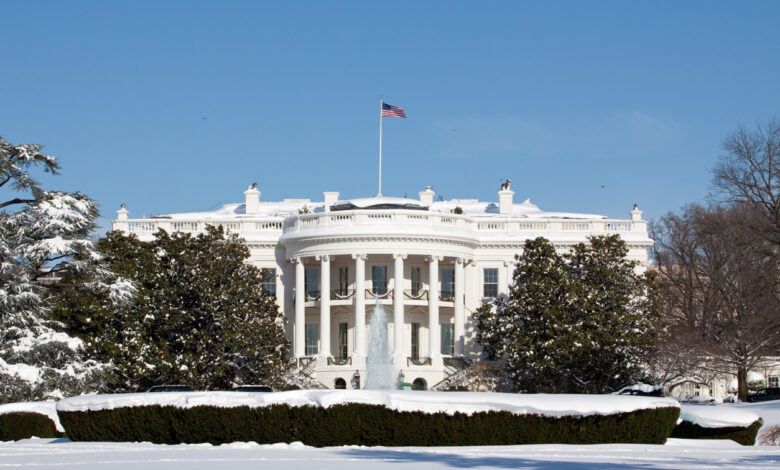Member Briefings
Weekend Quick Takes: The View from DC

As I mentioned on our podcast, I was in Washington all week doing high level meetings. In my last brief, I mentioned the reasons I encountered there to be optimistic about America’s current democracy crisis. In this edition of the brief, let me offer you ten other quick takes I came away with:
- There is a sense that the cases against Donald Trump in Georgia and New York as well as this week’s 8-1 Supreme Court decision requiring Trump’s White House documents to passed along to the January 6th Commission on the Hill signal a change in the weather for the former president’s legal fortunes.
- The many levels and complexities of the Trump team’s conspiracy to subvert the results of the last election are not just coming into focus, but it is increasingly clear that there is a legal case to be made against those close to Trump (and perhaps Trump) for masterminding that conspiracy.
- For this reason, as people look to the factors likely to sway the 2022 election results, Trump’s legal jeopardy and perhaps that of a number of senior Republicans and members of Congress close to the president could be one of the biggest developments swaying public opinion. This may hit in two ways with backlash against loyal Republicans but, more saliently, moving independents away from a GOP that is increasingly seen as too closely associated with Trump’s crimes.
- Omicron seems to be taking a turn for the better in DC as well as NY. But whether that signals the beginning of the end of a COVID crisis now that is now two years old is unclear. New variants could develop. The disease itself could become endemic and a fact of life for the foreseeable future. In either case, COVID and its economic and social aftermath is likely to be the big driver in American politics this year. (Listen to our Thursday podcast with Norm Ornstein, Simon Rosenberg and Kavita Patel for more on this.) If the country feels like the pandemic is contained and we’re recovering, that’s good news for Democrats. If the costs and frustrations of the disease continue to linger into November, no other single factor is as likely to influence the final outcome in favor of the GOP.
- The President’s two hour news conference this week generally impressed Washington insiders. They don’t get as hung up on gaffes as the press—for whom getting the president to misspeak is a kind of inside game of absolutely zero value for the rest of the world. His two-hour performance showing mastery of the details of issue after issue struck many as a sign of his firm grip on the tiller. But that performance was linked to the bigger take-away—the administration’s message that in 2022 they will get Biden outside the Beltway more and use the power of his compassion and interpersonal skills to make connections with Americans in a way that resonates.
- That announcement is linked to a sense in the WH that Biden was captured by DC negotiations this year and that that was not the best use of his time or talents. Most folks on Capitol Hill have made up minds and a year of work, while productive, has not moved any of them away from the positions they entered 2021 with. Getting Biden out among the people—ideally accompanied by his cabinet and VP—is the best way to produce change from the grass roots up.
- There’s a cottage industry in DC of folks who have “helpful ideas” for the administration. Some are suggesting personnel changes to go with the strategy changes announced. Almost all are promoting their own special interests…and are based on the fallacy that Biden actually did not have a successful 2021 (or that current poll results mean anything at all). For more on this…see the piece I have in the Daily Beast this weekend focused on Washington’s latest craze, blaming the left for every problem Biden is perceived to have.
- Concerns about Ukraine are high. The consensus among top US national security officials is that Russia invading that country is more likely than not and that if they do it, doing it in a big way is more likely than not.
- That said, Secretary of State Antony Blinken is leading a well-coordinated, multi-level diplomatic effort to manage the crisis. His initial goals have included keeping NATO unified and on message and signaling the Russians that their efforts to intimidate NATO into changing their policies about expansion. On each of these, those efforts have been successful thus far. The US and NATO have also made it clear to Russia that if they invade the costs will be high.
- Whether Russia invades, of course, will be up to Putin. If he does, while the costs will be high for Ukraine and likely for Russia, it also seems sure that the Russian president will not achieve his primary strategic objectives. In fact, NATO will emerge stronger (and possibly bigger—keep an eye on Sweden and Finland). The US too will be empowered and Putin will have done more to send the message that the US is back than Biden or his team ever could have.
More observations to come. Plenty in this week’s podcasts. Join us.

